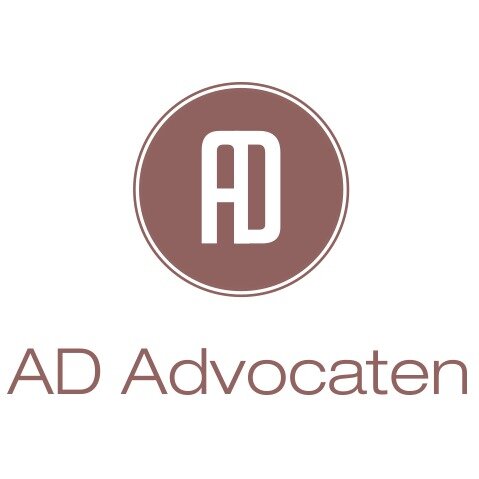Best Bankruptcy Lawyers in Amsterdam
Share your needs with us, get contacted by law firms.
Free. Takes 2 min.
List of the best lawyers in Amsterdam, Netherlands
About Bankruptcy Law in Amsterdam, Netherlands
Bankruptcy law in Amsterdam, like the rest of the Netherlands, is governed by the Dutch Bankruptcy Code ("Faillissementswet"). The law applies to businesses and individuals who are unable to pay off their debts. In bankruptcy proceedings, known as "Faillissement," assets are liquidated to repay creditors. In some cases, individuals may qualify for debt restructuring ("Schuldsanering"), an alternative to bankruptcy that allows for repayment plans over a period of three years.
Why You May Need a Lawyer
Seeking legal advice for bankruptcy is necessary for determining your eligibility for bankruptcy or debt restructuring procedures based on your financial situation. Attorneys can provide valuable assistance in navigating through the complex procedures, filing necessary documents and representing you in court. They can also advise on potential consequences of bankruptcy, such as the effects on your credit and future financial prospects. Having a knowledgeable professional by your side can also ensure that your rights are protected throughout the process.
Local Laws Overview
The bankruptcy law in Amsterdam focuses on liquidation of assets to repay the creditors as fairly as possible. All assets-real estate properties, vehicles, businesses, and personal belongings-are evaluated for this purpose. Furthermore, these proceedings are conducted under the direct guidance of a bankruptcy trustee appointed by the court. For personal bankruptcy cases, individuals may apply for debt restructuring offered by the government if they meet certain criteria. This allows for manageable repayments and, in some circumstances, debt forgiveness after a three-year period.
Frequently Asked Questions
1. Who can file for bankruptcy?
Both businesses and individuals who are unable to pay their debts can file for bankruptcy in Amsterdam. However, you must prove to the court that you are insolvent and cannot meet your financial obligations.
2. What is the difference between bankruptcy and debt restructuring?
While bankruptcy involves the liquidation of assets to repay creditors, debt restructuring allows individuals to repay their debt over a period of up to three years. After this period, any remaining unsecured debt may be written off.
3. What effects will bankruptcy have on my credit?
Bankruptcy will significantly impact your credit score, and it will remain on your credit history for several years. This can make it harder to get credit, mortgages, or even rent a property.
4. Can all debts be included in bankruptcy?
Most unsecured debts, such as credit cards and personal loans, can be included in bankruptcy. However, certain debts like child support arrears, student loans, and fines for criminal offenses are typically not dischargeable.
5. Can bankruptcy be used to stop foreclosure on my home?
Declaring bankruptcy can temporarily halt the foreclosure process. However, permanent prevention would depend on your specific circumstances and legal advice is imperative.
Additional Resources
The Dutch government's official website offers a wealth of information on bankruptcy laws, procedures, and support available. The Netherlands Bar Association can also help in finding local attorneys specializing in bankruptcy law. For those struggling with personal insolvency, the National Institute for Budget Information provides financial guidance and support.
Next Steps
If you need legal assistance in bankruptcy, consider consulting a specialized bankruptcy attorney. They will review your financial situation, advise on the best course of action, and guide you through all legal proceedings. Ensure to collect all relevant financial documentation to facilitate a comprehensive assessment of your circumstances. Remember that timing is often critical in these matters-so don’t delay in seeking legal support.
Lawzana helps you find the best lawyers and law firms in Amsterdam through a curated and pre-screened list of qualified legal professionals. Our platform offers rankings and detailed profiles of attorneys and law firms, allowing you to compare based on practice areas, including Bankruptcy, experience, and client feedback.
Each profile includes a description of the firm's areas of practice, client reviews, team members and partners, year of establishment, spoken languages, office locations, contact information, social media presence, and any published articles or resources. Most firms on our platform speak English and are experienced in both local and international legal matters.
Get a quote from top-rated law firms in Amsterdam, Netherlands — quickly, securely, and without unnecessary hassle.
Disclaimer:
The information provided on this page is for general informational purposes only and does not constitute legal advice. While we strive to ensure the accuracy and relevance of the content, legal information may change over time, and interpretations of the law can vary. You should always consult with a qualified legal professional for advice specific to your situation.
We disclaim all liability for actions taken or not taken based on the content of this page. If you believe any information is incorrect or outdated, please contact us, and we will review and update it where appropriate.









